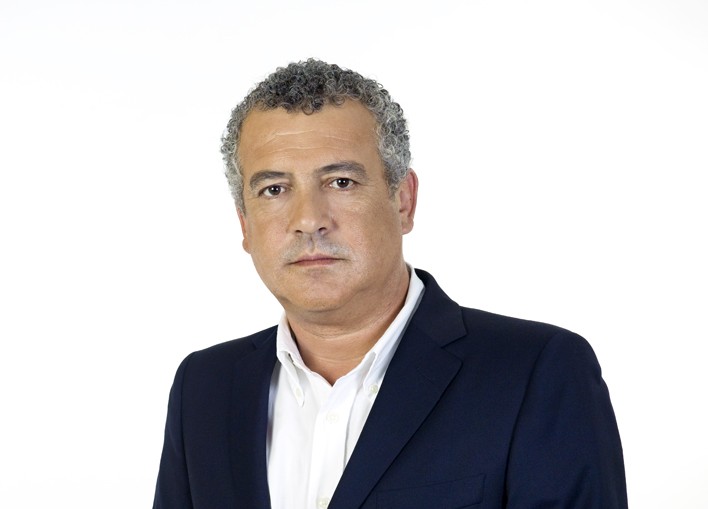José Carlos Barros won the Leya 2021 prize for his book “As People Invisíveis”, announced today, Tuesday, 7 December, the jury of the competition, collective chaired by Manuel Alegre.
The work of the poet, writer and politician algarvian was one of the 732 originals that competed for the prize, of which only 14 made the final selection appreciated by the jury.
With a value of 50 thousand euros, the «Prémio LeYa is the biggest literary prize for unpublished novels in the entire Portuguese-speaking world».
Speaking to RTP3, José Carlos Barros said he was “between incredulous and happy. These are, perhaps, the two words that best describe my condition at the moment».
“I found out about the award a little while ago. The odds were against each of the authors because there are so many competitors. Obviously, it was a great surprise and a great happiness”, he added.
“Writing is sitting in front of a wall, with a blank page, a screen or a blank sheet of paper. And when we have a recognition like this, the first thing that occurs to us is that it makes up for those moments stolen from other things. (…) I feel that this work is being paid for, which is hard and is rarely recognized», said the Algarve writer.
«The Invisible People is a journey through several times in Portugal's recent history since the XNUMXs, narrated by an ambiguous character, Xavier, who acts as if he had a gift or as if he needed to believe that he had a gift», he describes the Leya Prize jury, in a statement.
“From the 40s of the XNUMXth century, with the ambition of gold, Salazar's position in the face of War, the colonial war with all the questions it raises today, the birth and the first years of democracy. In all these landscapes and in all the times that the novel touches, the word belongs to those who don't usually have it. Dramatic, veiled, fleeting, lapidary, touched by the supernatural», he adds.
In this work, «the inhabitants of the rural world or the blacks of the colonies» are focused, presented as «almost diaphanous beings, which underline a feeling of almost lostness, which runs through the entire book and constitutes one of its most magnetic points».
"In The Invisible People, the reader is summoned to fill with his imagination the unsaid, the silences, the invisible. Also noteworthy is the language work, the mastery of a telluric orality contrasting with the wealth of vocabulary and historical and social references», concluded the jury.
The collective that awarded the prize is chaired by the poet and politician Manuel Alegre, and includes Ana Paula Tavares, Angolan writer and poet, Isabel Lucas, literary critic, José Carlos Seabra Pereira, professor of Portuguese Literature at the University of Coimbra, Lourenço do Rosário, professor of Letters, founder and former rector of the Polytechnic University of Maputo, Nuno Júdice, poet and writer, and Paulo Werneck, editor of the literary magazine Quatro Cinco Um, journalist and Brazilian translator.
José Carlos Barros was born in Boticas, but lives in Vila Nova de Cacela, in Vila Real de Santo António, municipality whose Chamber he was vice-president, elected by the PSD, on more than one occasion.
He was a member of the Portuguese Parliament for the Algarve, elected by the Social Democrats, from 2015 to 2019.
Degree in Landscape Architecture from the University of Évora, he has been working in the fields of land use planning and nature conservation. He was director of the Ria Formosa Natural Park.
He is the author, among others, of poetry books A Useless Abstraction, All Castaways, Theory of Forgetfulness, Small Depressions (with Otília Monteiro Fernandes) and Settlement Laws (also edited in Castilian). With Seven Epigones of Thebes, he won the 2009 Sebastião da Gama National Poetry Award. In 2003 he made his debut in prose with The Day the Sea Disappeared.
He has won several literary awards (especially the Sebastião da Gama National Poetry Prize, which was awarded to him twice) and his poetic texts are published in several countries.
O Pleasure and Boredom was her first novel, followed by a friend for winter (Casa das Letras, 2013), with which he was a finalist for the LeYa Prize in 2012. His most recent books (poetry) are the following: The Use of Poisons, ed. Dead Tongue (2nd edition, 2018), Children's Education, ed. From the Left Side Publisher, 2020, Station – The Poems of DN Jovem, 1984-1989, ed. On and Va, 2020, and Penelope writes to Ulysses, Editions Caixa Alta, 2021.




















Comments